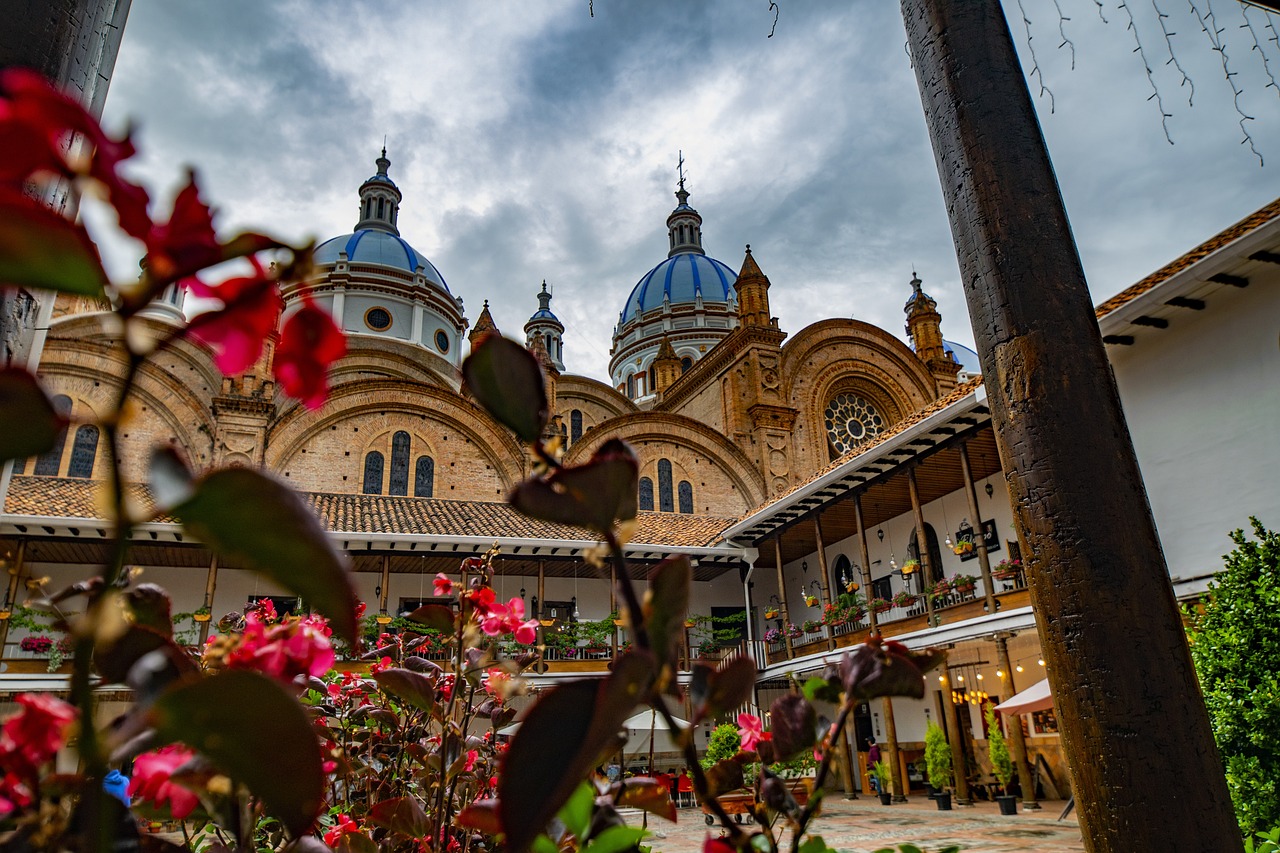Ecuador Video
Emergency Services: What to Know While in Ecuador
Ecuador is a beautiful country located in South America. It offers stunning landscapes, rich cultural heritage, and warm hospitality. While exploring Ecuador, it’s essential to be aware of the emergency services available to ensure your safety and well-being. This article will provide you with detailed information about emergency services in Ecuador, including contact numbers, healthcare facilities, police assistance, and more.
Healthcare Facilities
When it comes to healthcare facilities, Ecuador has a comprehensive system that caters to both locals and tourists. The country boasts numerous hospitals, clinics, and medical centers equipped with modern facilities and qualified healthcare professionals. Here are some key points to know about healthcare facilities in Ecuador:
- Public Hospitals: Ecuador has a network of public hospitals that offer medical services to all residents, including emergency care. Some well-known public hospitals in major cities include Eugenio Espejo Hospital in Quito and Vicente Corral Moscoso Hospital in Cuenca.
- Private Hospitals: Private hospitals in Ecuador provide high-quality healthcare services and often have English-speaking staff. Some renowned private hospitals are Hospital Metropolitano in Quito and Hospital de los Valles in Guayaquil.
- Health Insurance: It is highly recommended to have travel or international health insurance that covers medical expenses in Ecuador. Contact your insurance provider to ensure coverage and understand the reimbursement process.
- Pharmacies: Pharmacies are easily accessible throughout Ecuador, even in remote areas. Look for the “Farmacia” sign, and they usually have a green cross symbol. Pharmacists can provide over-the-counter medications and advice.
Emergency Numbers
In case of emergencies, knowing the appropriate contact numbers is crucial. Here are the emergency numbers to keep in mind while in Ecuador:
- 911: This is the general emergency number in Ecuador, similar to many other countries. It connects you to police, medical, and fire services.
- Tourist Police: If you require assistance specifically for tourist-related matters, you can contact the Tourist Police at 1800-ECU-911 or 02-290-6000 (in Quito).
- Fire Department: For fire-related emergencies, dial 102 to reach the Fire Department.
- Ambulance: Dial 911 for medical emergencies, and the operators will dispatch an ambulance to your location.
Police Assistance
The police in Ecuador play a vital role in maintaining law and order. If you find yourself in a situation that requires police assistance, here are some essential points to remember:
- National Police: The National Police of Ecuador is responsible for general law enforcement. They can be reached by dialing 911 in case of emergencies or by visiting the nearest police station.
- Tourist Police: The Tourist Police specialize in assisting tourists and providing information about tourist attractions, safety, and security. They are trained in multiple languages and can be recognized by their distinctive uniforms. If you need tourist-related assistance, look for a Tourist Police officer or contact them at 1800-ECU-911 or 02-290-6000 (in Quito).
- Reporting a Crime: If you become a victim of a crime or witness any illegal activity, report it to the police immediately. Provide them with all relevant details to help them with their investigation.
Embassies and Consulates
Embassies and consulates provide assistance to their respective citizens while abroad. If you need help regarding passport issues, legal matters, or any other consular services, here are some key points to remember:
- Embassies: Many countries have their embassies in Ecuador, particularly in Quito. Contact your embassy or consulate for any consular services or assistance you may require.
- Consulates: Consulates are often located in major cities and provide services to citizens who are not near the embassy. Check the location and contact details of your consulate in Ecuador before traveling.
- Emergency Contacts: Embassies and consulates usually have emergency contact numbers specifically for their citizens. Keep these numbers handy in case of any urgent situations.
Ecuador Image 1:

Transportation Services
Getting around in Ecuador is relatively easy, thanks to various transportation options. Here are some important points to know about transportation services:
- Taxis: Taxis are a common mode of transportation in Ecuador. Look for authorized taxis with yellow license plates, and ensure the driver uses a meter or agrees on a fare before starting the journey.
- Rideshare Services: Rideshare services like Uber and Cabify operate in major cities of Ecuador, providing a convenient and safe way to travel. Install the respective app and follow the usual booking process.
- Public Buses: Public buses are widely available and connect different cities and towns in Ecuador. They are an affordable option, but the schedules and routes may vary. Check with locals or bus stations for the most accurate information.
- Car Rentals: If you prefer to drive yourself, car rentals are available in Ecuador. Make sure to have a valid driver’s license and understand the local traffic rules and regulations.
Natural Disasters
Ecuador is located in an area prone to natural disasters such as earthquakes, volcanic eruptions, and occasional floods. While these events are rare, it’s essential to be prepared and informed. Here are some key points to know about natural disasters in Ecuador:
- Earthquakes: Ecuador lies on the Pacific Ring of Fire and experiences seismic activity. Familiarize yourself with earthquake safety measures and follow any instructions given by local authorities during an earthquake.
- Volcanic Activity: Ecuador has several active volcanoes. Stay informed about the current volcanic status and heed any warnings or evacuation notices issued by authorities.
- Floods and Landslides: Heavy rainfall can cause flash floods and landslides in certain areas of Ecuador, especially during the rainy season. Stay updated on weather forecasts and avoid traveling to high-risk areas during adverse conditions.
Ecuador Image 2:

Emergency Preparedness
Being prepared for emergencies is essential, regardless of your travel destination. Here are some general tips for emergency preparedness in Ecuador:
- Travel Insurance: Obtain comprehensive travel insurance that covers medical emergencies, trip cancellations, and lost belongings. Read the policy carefully and understand the coverage limits.
- Emergency Kit: Pack a basic emergency kit containing essential items like a first aid kit, flashlight, extra batteries, non-perishable food, and bottled water.
- Local Customs and Laws: Familiarize yourself with the local customs, laws, and regulations of Ecuador. Respect the cultural norms and behave responsibly to avoid any legal issues.
- Communication: Ensure you have a reliable means of communication, such as a local SIM card or access to Wi-Fi, to stay connected during emergencies.
Emergency Services for Tourists
Ecuador is a popular tourist destination, and specific services cater to the needs of travelers. Here are some important points to know about emergency services for tourists:
- Tourist Assistance Centers: Ecuador has tourist assistance centers located in major cities and popular tourist destinations. These centers provide information, assistance, and guidance to tourists.
- Language Assistance: English may not be widely spoken in all areas of Ecuador. Consider learning some basic Spanish phrases or carry a translation app to facilitate communication.
- Travel Advisory: Check the travel advisories issued by your country’s government before visiting Ecuador. They provide important information regarding safety concerns and potential risks.
Ecuador Image 3:

Conclusion
While exploring the wonders of Ecuador, it’s essential to prioritize your safety and well-being. Familiarize yourself with emergency services, healthcare facilities, and local laws to ensure a smooth and enjoyable trip. Remember to take necessary precautions, stay informed about your surroundings, and always have emergency contact numbers readily available. By being prepared, you can make the most of your time in Ecuador while having peace of mind.
References
- Ecuador Travel – www.ecuador.travel
- U.S. Department of State – travel.state.gov
- Embassy of Ecuador – www.ecuador.org
- World Health Organization – www.who.int


